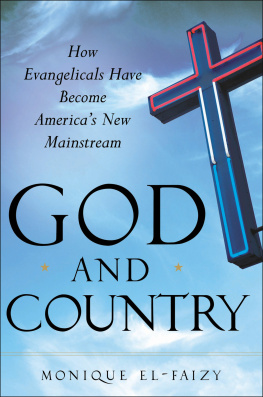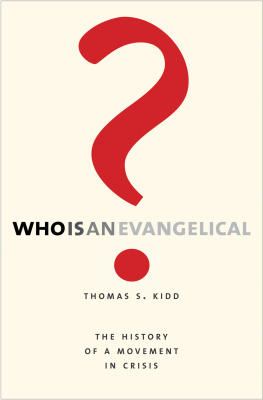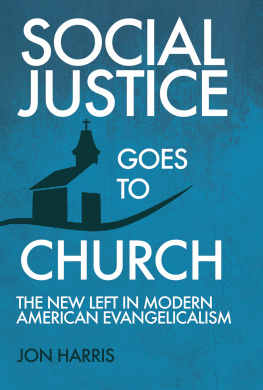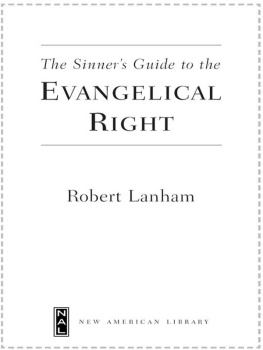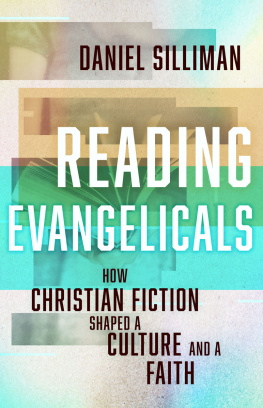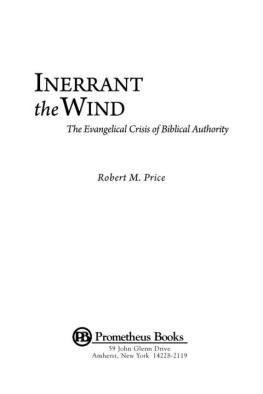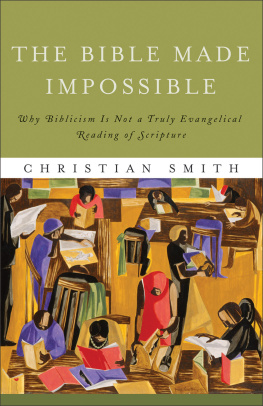God
and
Country
God
and
Country
How Evangelicals
Have Become
America's New
Mainstream
Monique El-Faizy

Author's Note: Some of the names in this book have been changed to protect the privacy of persons involved.
Copyright 2006 by Monique El-Faizy
All rights reserved.
You may not copy, distribute, transmit, reproduce, or otherwise make available this publication (or any part of it) in any form, or by any means (including without limitation electronic, digital, optical, mechanical, photocopying, printing, recording, or otherwise), without the prior written permission of the publisher. Any person who does any unauthorized act in relation to this publication may be liable to criminal prosecution and civil claims for damages. For information address Bloomsbury USA, 1385 Broadway, New York, NY 10018.
Published by Bloomsbury USA, New York
Bloomsbury is a trademark of Bloomsbury Publishing Plc
Library of Congress Cataloging-in-Publication Data
El-Faizy, Monique.
God and country : how Evangelicals have become America's new mainstream / Monique El-Faizy.1st U.S. ed.
p. cm.
Includes bibliographical references and index.
1. EvangelicalismUnited States. 2. Christianity and cultureUnited States. 3. Christianity and politicsUnited States. 4. United StatesChurch history. I. Title.
BR1642.U5E42 2006
277.3'083dc22
2006013324
eISBN: 978-1-59691-981-5
First U.S. Edition 2006
To find out more about our authors and books visit www.bloomsbury.com. Here you will find extracts, author interviews, details of forthcoming events and the option to sign up for our newsletters.
For Theo and Xander
and of course, for Oliver
Contents
I began this project reluctantly. It was at the urging of an insightful friend that I first considered writing about evangelical Christianity. I would likely never have come to it on my own, having turned my back on my fundamentalist upbringing in college. But when I revisited the world of my youth, I saw a vastly different place, one that had grown to resemble the secular worldin style, if not in substance. It was clear those changes had expanded the influence of the evangelical subculture, though not yet to what degree. At the time, President Bush was in the early months of his first term in office, the details of his religiosity were only beginning to emerge, and the impact evangelicals were having on American culture had not yet come into focus.
I also saw the bias the press carried against evangelicals as it chronicled their ascenta bias I, in fact, shared. I had rejected evangelical Christianity when a cross-country move to attend the University of Pennsylvania widened my world and I had come to see born-again Christians through the same lens as that of my peers. I considered the religion oppressive, its believers closed minded, and I did so with the kind of fervor only a former adherent could muster. And yet, I was unable to completely dismiss evangelicalism, because there were people I loved and respected who belonged to its ranks.
I had assiduously avoided church since my early days in college, and any encounter with Christianity made me uncomfortable. Shortly before the conversation that prompted me to write this book, I had given birth to my first son. I realized that, since my husband was Jewish, if I wanted my child to have any understanding of my family's beliefs and customs, I'd have to overcome my aversion. I thought that undertaking this project might help me do that. Approaching it with journalistic detachment would give me cover.
So the writing of this book has, inevitably, been a personal journey as well as a professional one. I have tried to put aside my own negative feelings about the evangelical world and look at it with fresh eyes. Clearly the religion appeals to millions of people. I set out to overcome my own biases and figure out what it is about evangelicalism that people are drawn to. I have come to appreciate that evangelical Christianity can provide a warm, comforting, and, at times, even stimulating community. I have also seen the flip side: that it can be judgmental and closed minded. But in forcing myself to be more open minded about the people I was meeting than I was naturally inclined, I have come to know evangelicals who are genuine, interesting, intellectually curious, and engaged with the world in which we all live. They just happen to believe in something I don't.
Along the way many of the people I interviewed told me they thought God was using this project to bring me back to him. That hasn't happened, and I sincerely doubt it willthere are too many beliefs at the core of evangelical Christianity that I can't see myself ever accepting, and I have too vivid a memory of the shortcomings of the earthly Church to want to be part of it again. Still, I've met many believers whose intellects I respect and whose kindness I admire.
I see my role in the writing of this book as neither judge nor apologist. I wish simply to shine a spotlight on a world little understood by those on the outside. Just as leaving the church two decades ago allowed me to broaden my horizons, revisiting it has helped me open my mind and deepen my understanding of a phenomenon that has seized America and is affecting all of our lives. I hope anyone reading this book will come away similarly enriched.
Saturday evening, Thirty-third Street and Seventh Avenue. Make your way up the escalators, past the pictures of Muppets, rock stars, and sports heroes and toward the Theater at Madison Square Garden. You'll encounter several smiling greeters along the way, handing out schedules and donation envelopes. As you ascend the final bank of escalators, you'll hear snippets of hand-clapping, stomp-inducing music. Round the corner into the upper level of the theater, and spread out before you will be thousands of people of all ages and races waving their hands in the air, swaying and dancing and singing praises to Jesus.
Not exactly what one might expect on a Saturday night in the heart of Gotham, perhaps, but it's happening all over. In the midst of New York City, emblem of fast living and vice, is a vibrant world of evangelical Christianity. You can find it at these weekly services at Madison Square Garden, preached by prosperity-doctrine evangelist Creflo Dollar, who flies in from his home in Atlanta. You'll discover it at Times Square Church, which meets in a converted theater and is visited by eight thousand people each week. It will be apparent in the speed with which appearances by evangelists like Billy Graham and Texas pastor Joel Osteen sell out or fill up. And you'll uncover it in hundreds of smaller churches that meet in apartments, schools, and renovated storefronts across the city. If you know where to look, you'll see it everywhere: a growing city-within-a-city of evangelical Christians, right under the nose of the city's intellectual elites.
While liberals and secularists still operate the levers of power in New York, on a national level evangelicals have become the new establishment. In the planks of our culturepolitics, publishing, music, and entertainmentevangelicals have risen to prominence. The 2004 presidential election opened the eyes of many so-called blue state Americans to the importance of evangelical Christianity (red state Americans were already aware of it), but its reach still hasn't been fully realized. Throughout the countryeven in blue Americaevangelical Christians exist in significant numbers. In the five boroughs of New York City alone there are at least eighteen evangelical megachurchesdefined as a congregation with more than two thousand membersand at least three of those are in the ultraliberal borough of Manhattan. Democratic stronghold California not only has a sizable evangelical population but is the birthplace of some of the most critical developments in the religion and home to many of its most important churches. Some of the fastest-growing congregations in Massachusetts and New Hampshire are evangelical, and New England as a whole has come to be regarded by evangelicals as one of the most promising mission fields in the country.
Next page
